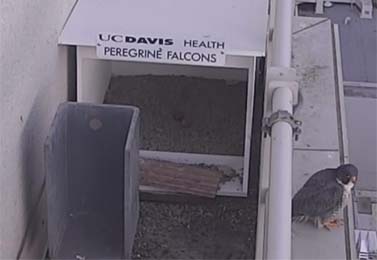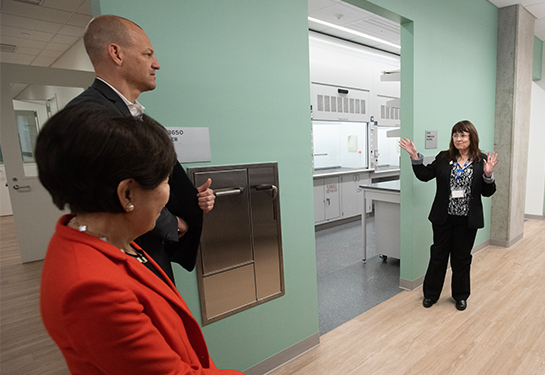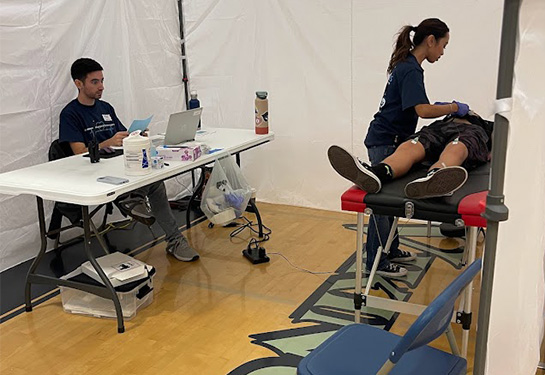Eggscellent news: peregrine falcons have returned – and they are expecting
UC Davis Medical Center’s peregrine falcon parents have returned for another season, and they have already laid eggs! The incubation period for peregrine falcons is usually 33-35 days. If everything goes well, livestream watchers may be able to enjoy seeing the chick(s) hatch in late April.

If the chicks hatch successfully, viewers will get to see nearly round-the-clock peregrine activities. The peregrine chick(s) will emerge from their eggs, then grow from furry white fluffs into very active small birds before flying away and leaving the nest.
Since at least 2015, a pair of peregrine falcons has called UC Davis Medical Center’s roof home. Their nest is located a safe distance from the hospital’s helipad. It will be home to the birds where they can comfortably nurture their newborn chicks through June.
Read about our peregrine falcon family's history by checking out the recaps of the past three seasons and stay tuned to the video livestream to keep up with the peregrines of UC Davis Medical Center.
About peregrine falcons
Peregrine falcons are known as one of the world's fastest birds. When power-diving from great heights to strike their prey, the falcons can reach speeds of 200 mph.
At one time, the birds were on the federal list of endangered species. They also were one of the first birds placed on California's Endangered Species List. A ban on the insecticide DDT in 1972 helped the species recover enough so that the raptor could be removed from the federal list in 1999. Ten years later, peregrine falcons were removed from the state’s list.



